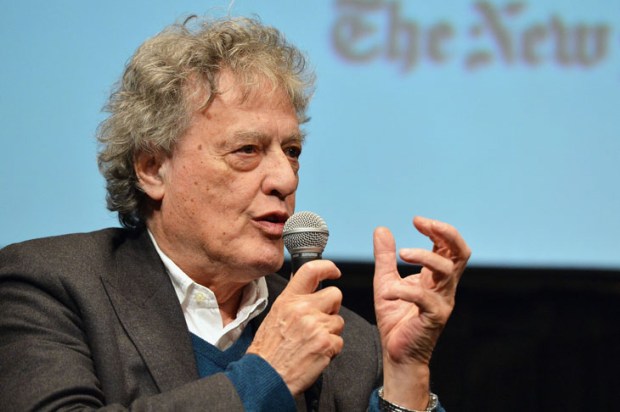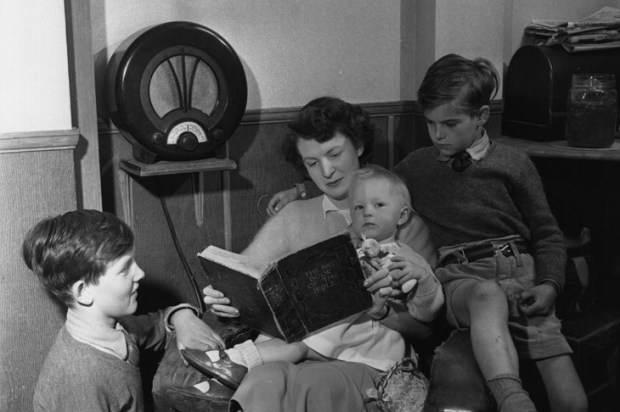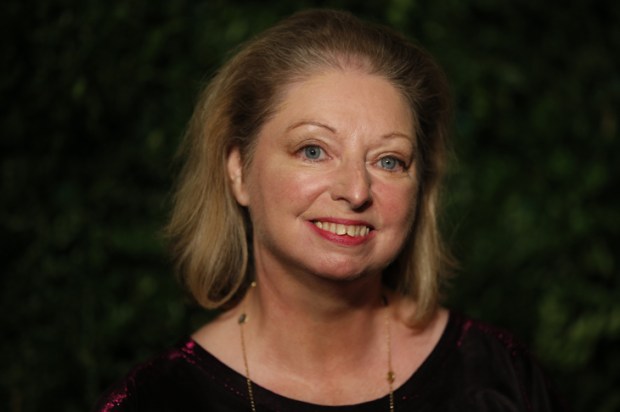Six years ago, on Good Friday, the journalist Melanie Reid was thrown off her horse while on a cross-country ride in Stirlingshire where she lives. The accident broke her neck and back and left her tetraplegic, paralysed from the armpits downwards. On Easter Sunday on Radio 3 she’s Michael Berkeley’s guest on Private Passions, a timely guest, as he says, because she has recently written in her Sunday Times column about being ‘surprised by a small epiphany of happiness’, of experiencing a ‘rebirth’, if ‘rather cruel’.
‘You find joy in little things …I see all the things that I never saw in my busy life,’ she says, which coming from her sounds far more than a cliché because she has also written about the awful business of catheters and rectal tubes, of the tedium, the frustration of her life now, of the way that her memories of the accident (she was conscious throughout and remembers everything) are ‘always there, gnawing away at you’. For months she couldn’t listen to music, not even an upbeat pop song, because ‘the pain and emotion it provoked in me was unstoppable …I could do many strong things during my rehabilitation [she spent a year in hospital] but I could not have listened to Bach.’
Reid’s weekly column about life as a tetraplegic, which she began writing after only three weeks in hospital, at first using a voice recorder and then learning how to type with two fingers, has inspired many with her grim determination and brutal honesty about how she feels. She has also been criticised by some disabled rights groups because she insists that ‘from where I sit, there’s not a disabled person who would not want a happy, free body back’. She’s also aroused the ire of the anti-euthanasia lobby because she believes choice is essential, ‘it liberates me to enjoy life on my terms’, knowing that she could, if it came to it, end it. She never pretends, never dissembles, telling us instead that soon after the accident she told her husband to leave her. ‘It almost seemed the polite thing to do.’ (Of course, he didn’t.)
After a while she discovered her injuries were not ‘complete’. There were still some flickers of movement, some muscle power in her arms. When it first happened she was ‘delirious …I’ll learn to walk again. My bladder and bowels will stop being paralysed.’ Only to be crushed when she was told there would be no progression; she could hope for nothing more but would have to live with these flickers, with ‘the torture of possibility’, as she has described her situation.
For her, rebirth means that she has had to learn how to live with a different self, and not one of her own choosing but imposed on her in a matter of seconds. Her story should be dark, depressing, wasted, but she still does carry a light, and a very bright one, because she’s not afraid to look into that darkness and expose it. Of her choice of Beethoven’s Fifth Piano Concerto she remarked, ‘It marshalls you. The music says, “Come on. Rise up with me.”’
Radio 2’s special Easter Glory programme (also Easter Sunday) takes us on a trip back into the wireless era, its combination of readings and music with a religious theme straight out of Lord Reith’s rulebook. Improving but also entertaining. Yet it’s so well made, the music (performed by the Bach Choir and the BBC Concert Orchestra) so calming and uplifting, it’s like balm for a weary soul.
Frances Finn presents and talks to John Rutter about the inspirations for his new series of cantatas, The Gift of Life, which is threaded through the programme. In ‘The Gift of Each Day’, for instance, Rutter says he was inspired by the same thoughts and insights that Melanie Reid shares with us earlier in the day on Radio 3. ‘It’s a very ordinary thought,’ he remarked, ‘perhaps a bit cheesy’, but we are ‘never grateful enough’ for the simple things like ‘just waking up each day and still being able to wiggle my toes’.
Also, next week, if you happen to be by the sea for the Easter holiday listen out for Radio 4’s five-part A Guide to Coastal Wildlife, beautifully recorded with every splash of water and curlew’s call by Chris Watson (and produced by Sarah Blunt). It’s a chance to recapture the way of looking we all once experienced as a child, staring for hours into a rockpool simply observing the minute movement of a crab’s pincer or a sea anemone’s tentacles. Phil Gates and Brett Westwood remind us of the excitement of never knowing what you’re going to find when you first start looking into the depths of the pool. There’s always something interesting lurking underneath. Take those empty shells in the corner. Look again and you’ll discover that one of them is a hermit crab, waiting to find another shell to move into in order to survive. In one smooth movement the crab slips out of its shell and slides into the huge coil of the whelk next door. A step up the property ladder for the crab; rebirth of another kind.
Got something to add? Join the discussion and comment below.
Get 10 issues for just $10
Subscribe to The Spectator Australia today for the next 10 magazine issues, plus full online access, for just $10.














Comments
Don't miss out
Join the conversation with other Spectator Australia readers. Subscribe to leave a comment.
SUBSCRIBEAlready a subscriber? Log in